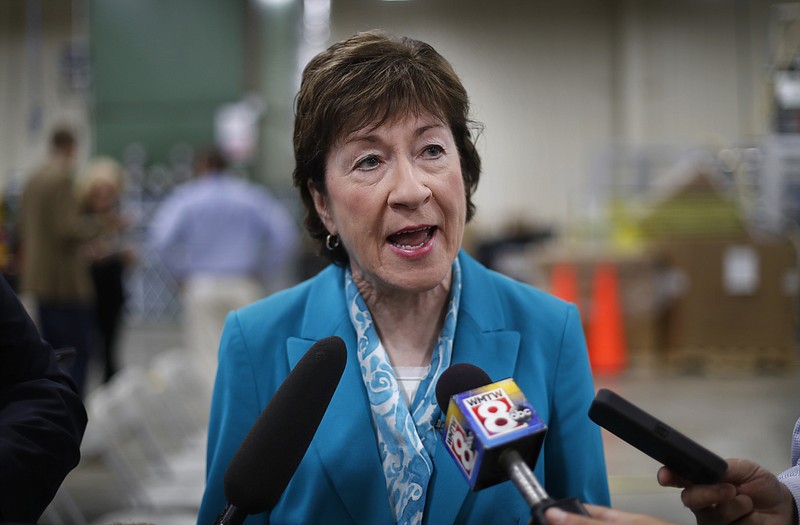WASHINGTON (AP) - Republican opposition to the GOP health care bill swelled to near-fatal numbers Sunday as Sen. Susan Collins all but closed the door on supporting the last-ditch effort to scrap the Obama health care law, and Sen. Ted Cruz said "right now" he doesn't back it.
White House legislative liaison Marc Short and Sen. Lindsey Graham, R-S.C., one of the measure's sponsors, said Republicans would press ahead with a vote this week. But the comments by Collins and Cruz left the Republican drive to uproot President Barack Obama's Affordable Care Act dangling by an increasingly fraying thread.
A vote must occur this week for Republicans to prevail with their narrow Senate majority. Next Sunday, protections expire against a Democratic filibuster, bill-killing delays that Republicans lack the votes to overcome.
President Donald Trump seemed to distance himself from the showdown, saying his "primary focus" was his party's drive to cut taxes.
"I don't know what they're doing," Trump told reporters about the bill's GOP opponents as he prepared to fly back to Washington after a weekend at his New Jersey golf club. "But you know what? Eventually we'll win, whether it's now or later."
Two GOP senators, Rand Paul, of Kentucky, and John McCain, of Arizona, have already said they oppose the legislation. All Democrats will vote against it. "No" votes from three of the 52 GOP senators would kill the party's effort to deliver on its perennial vow to repeal "Obamacare" and would reprise the party's politically jarring failure to accomplish that this summer.
Collins cited the bill's cuts in the Medicaid program for low-income people and the likelihood it would result in many losing health coverage and paying higher premiums. The Maine moderate also criticized a provision letting states make it easier for insurers to raise premiums on people with pre-existing medical conditions.
"It's very difficult for me to envision a scenario where I would end up voting for this bill," Collins said.
The conservative Cruz also voiced opposition, underscoring the bill's problems with both ends of the GOP spectrum.
"Right now, they don't have my vote," Cruz said at a festival in Austin, Texas. He suggested the measure doesn't do enough to reduce premiums by allowing insurers to sell less comprehensive coverage than Obama's law allows.
Cruz said he doesn't think fellow conservative Sen. Mike Lee, R-Utah, backs the GOP bill. Lee spokesman Conn Carroll said Lee wants "technical changes" but hasn't finalized his position.
The growing opposition leaves the White House and party leaders with one immediate option: changing opponents' minds.
Republicans have said they're still reshaping the bill in hopes of winning over skeptics. Collins said sponsors were making last-minute adjustments in the measure's formulas for distributing federal money to states.
"So yes, we're moving forward and we'll see what happens next week," Graham said.
Paul said even though the bill transforms federal health care dollars into block grants states would control, the GOP bill left too much of that spending intact.
"Block granting Obamacare doesn't make it go away," Paul said.
McCain has complained Republicans should have worked with Democrats in reshaping the country's $3 trillion-a-year health care system and cited uncertainty over the bill's impact on consumers.
A chief target of GOP leaders is Sen. Lisa Murkowski, R-Alaska, whose state has unusually high health care costs because of its many remote communities. Collins and Murkowski were the only Republicans who voted "no" on four pivotal votes on earlier versions of the GOP legislation in July.
Murkowski has remained uncommitted, saying she's studying the bill's impact on Alaska. Her state's officials released a report Friday citing "unique challenges" and deep cuts the measure would impose on the state.

